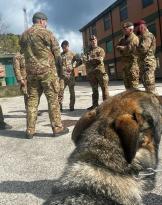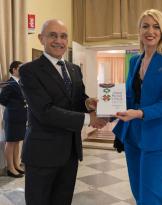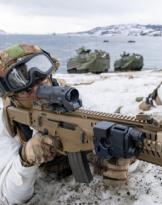The approach with new working realities and new ways of collaboration will undoubtedly be a major growth opportunity for the arsenals of Taranto, La Spezia and Augusta and for the armed forces, allowing it to confront the specialized civilian market both in economic terms and punctuality in the execution of orders. All this is coupled with the possibility of providing the local naval mechanics with the additional resources in terms of work and the Italian shipowners' companies in having a valid and competitive national interlocutor in a central Mediterranean area, allowing them not to turn to the foreign market .
The opening towards the industrial, civil and mercantile world passes through the institution of the "exchange for services" which provides in exchange for services and / or services made available to the administration, the supply of an equivalent consideration in works and / or materials.
In addition to making the work docks, basins (masonry and floating) and the precision engineering and mechanical workshops available in the arsenals of Taranto, La Spezia and Augusta, the navy makes laboratory services available to all interested parties. inside the arsenals and the specialized laboratories of the Joint Force Center for Advanced Ammunition (CIMA) of Aulla and of the Naval Support and Experimentation Center (CSSN) of La Spezia where tests, analyzes and measurements in the field of applied chemistry and explosives can be performed, technology of materials, environment, naval architecture, radar / infrared signature and electromagnetic compatibility, aimed at the testing, qualification and approval of materials and equipment.
The recent experiences carried out both in La Spezia and Taranto have allowed the navy to validate this approach and it is on this path that we want to continue making the infrastructures and marketable services previously indicated available to all local and national industrial realities (laboratory services , workshops, specialist offices, docks, dry docks) with the aim of having both military and civilian ships and a large number of engaged workers within the arsenals.
Source: Military Navy












